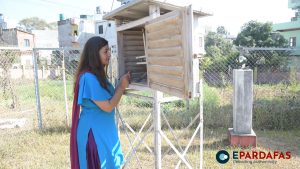
Chinese Hospitals in Hot Water for Fake Birth Certificates, Seven Detained
Multiple hospitals across several provinces in central and southern China were allegedly involved in providing fake birth certificates for abducted babies, with seven suspects arrested and four others being detained in Hubei province alone, according to Chinese state media.
Sina reported on Nov. 13 that local authorities, after receiving information and materials from Shangguan Zhengyi, an anti-child abduction and trafficking volunteer group, have ramped up scrutiny at hospitals in Hubei, Guangxi, and Guangdong, and dozens of suspects are currently under investigation.
Earlier on Nov. 6, Shangguan Zhengyi exposed some of its findings on Weibo, China’s most popular social media platform, claiming that it had conducted an undercover probe for over a year and found that several hospitals spanning the provinces of Hubei, Hunan, Guangxi, Guangdong, and Yunnan, offered fake birth certificates, vaccine books, and others, for sale on the social media platform Douyin—the Chinese version of TikTok.
Fake birth certificates can be used to register households and to provide fake identities for abducted children.
Ye Youzhi, the director of Xiangyang Jianqiao Hospital in Hubei Province, is one of the main suspects who issued over 5,000 birth certificates in three years for Beijing, Shandong, Sichuan, Gansu, and other provinces. She colluded with a gang to sell babies, both male and female, at prices of about 100,000 yuan (about $13,700) each to ten provinces across the country, according to Shangguan Zhengyi.
A birth certificate, as the first medical certificate after the birth of a child, plays a crucial role in all aspects of China, such as vaccination, household registration, enrollment in a school, and application for an ID card.
Li Yuanhua, an associate professor at the former Capital Normal University, told The Epoch Times on Nov. 11 that the trafficked babies have new identities, which will make it less possible for biological parents to find their missing children.
Shangguan Zhengyi has evidence that some buyers of abducted children have managed to register and settle the children in the southwest provinces of Sichuan and Yunnan, northern China’s Hebei, and northwest provinces like Shaanxi with the help of forged birth certificates.
The anti-child abduction group detailed how a fake ID was produced in the Xiangyang Jianqiao Hospital.
First, through an intermediary, the customer only needs to pay 96,000 yuan (about $13,200), and the hospital will follow the normal birth process to give a complete set of authentic information, such as filing, maternity checkups, hospitalization, delivery, discharge, and so on.
Then, the customer can bring the abducted baby to the hospital to collect plantar floor blood for the issuance of a birth certificate, and the entire process can be completed in a maximum of seven days.
If the customer can’t bring the baby on-site, he or she must pay 10,000 yuan (about $1,400) more, and the hospital will arrange for other babies to collect plantar blood.
In Guangdong Province, Foshan Fuaijia Maternity Hospital peddled birth certificates, including a complete set of actual hospitalization and delivery records, for 120,000 yuan (about $16,500) each through a network intermediary.
On Nov. 10, an Epoch Times reporter contacted Foshan Fuaijia Maternity Hospital for comment, and a staff member responded that the obstetrics and gynecology clinic had been suspended.
Crimes More Than Fake Birth Certificates
Shangguan Zhengyi noted some intermediaries said hospitals are a primary source of babies for sale, citing the two possibilities of the hospitals.
One is surrogacy, which is suspected to be an emerging source of baby trafficking. Ms. Ye had told her customers that Xiangyang Jianqiao Hospital was mainly engaged in surrogacy and that birth certificate processing was only a sideline.
Another notable point is hospitals are accessible to abandoned babies; for instance, hospitals can acquire from “a pregnant college student who doesn’t want a baby” and then notify agents of the supply; agents will look for buyers through the Chinese Tiktok platform, according to Shangguan Zhengyi.
Thirteen years ago, Ms. Ye was arrested and convicted for illegal fetal sex determination and illegally induced abortion, but that didn’t affect her status as a hospital director and vice-president of the Xiangyang Women’s Entrepreneurs Association.
Shangguan Zhengyi believes the response by Chinese Communist authorities has been insufficient in the face of the country’s rampant child-trafficking crimes, saying that they had reported child abduction cases to authorities in Shaanxi and Hebei in September but received no response.
So far, messages about birth certificates for sale still inundate the Chinese Tiktok platform, the civil volunteers group said.
Mr. Li pointed out that doctors’ and hospitals’ involvement in selling babies and birth certificates reveals “loopholes in the system” controlled by the Chinese Communist Party (CCP), and the ruling party should also be accountable for the lack of medical ethics and prevalence of human trafficking.
- Former King Gyanendra Extends Condolences Over Pahalgam Terror Attack
- Nepal Firmly Opposes Terrorism in All Forms: Foreign Minister Dr. Arzu Rana Deuba
- Protests Erupt Outside Pakistan Embassy in Kathmandu Following Terror Attack in Kashmir
- Chinese Export Factories Hit Pause Amid Tariff War Fallout, Signaling Deeper Economic Woes













Comments